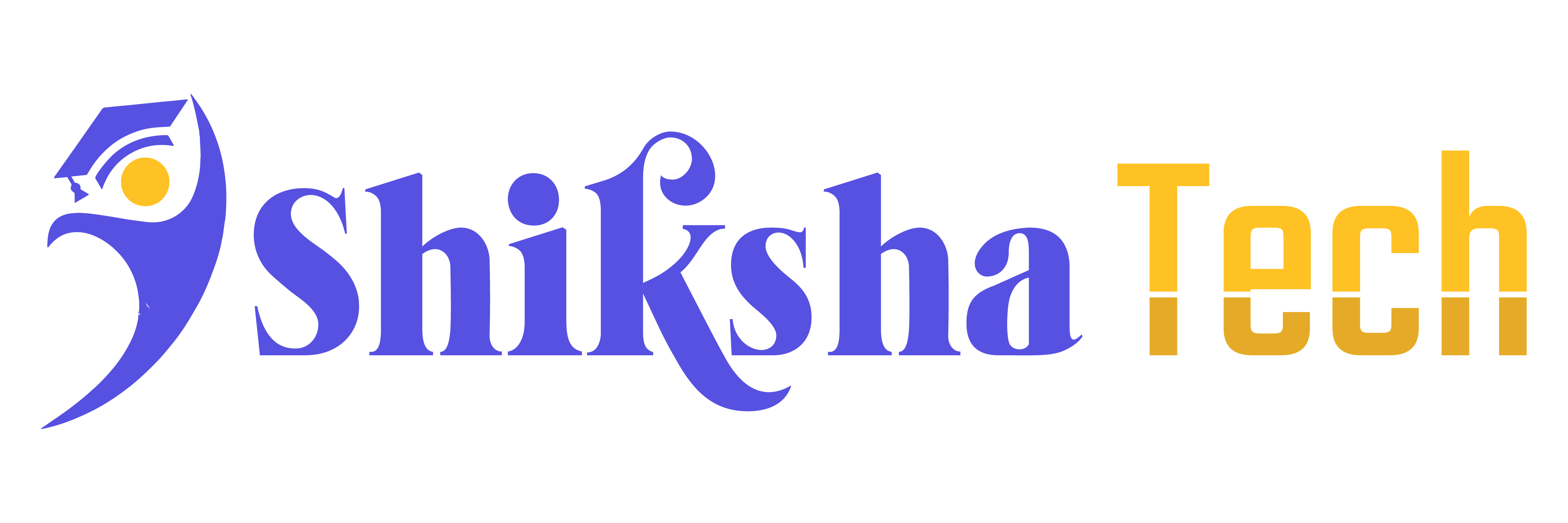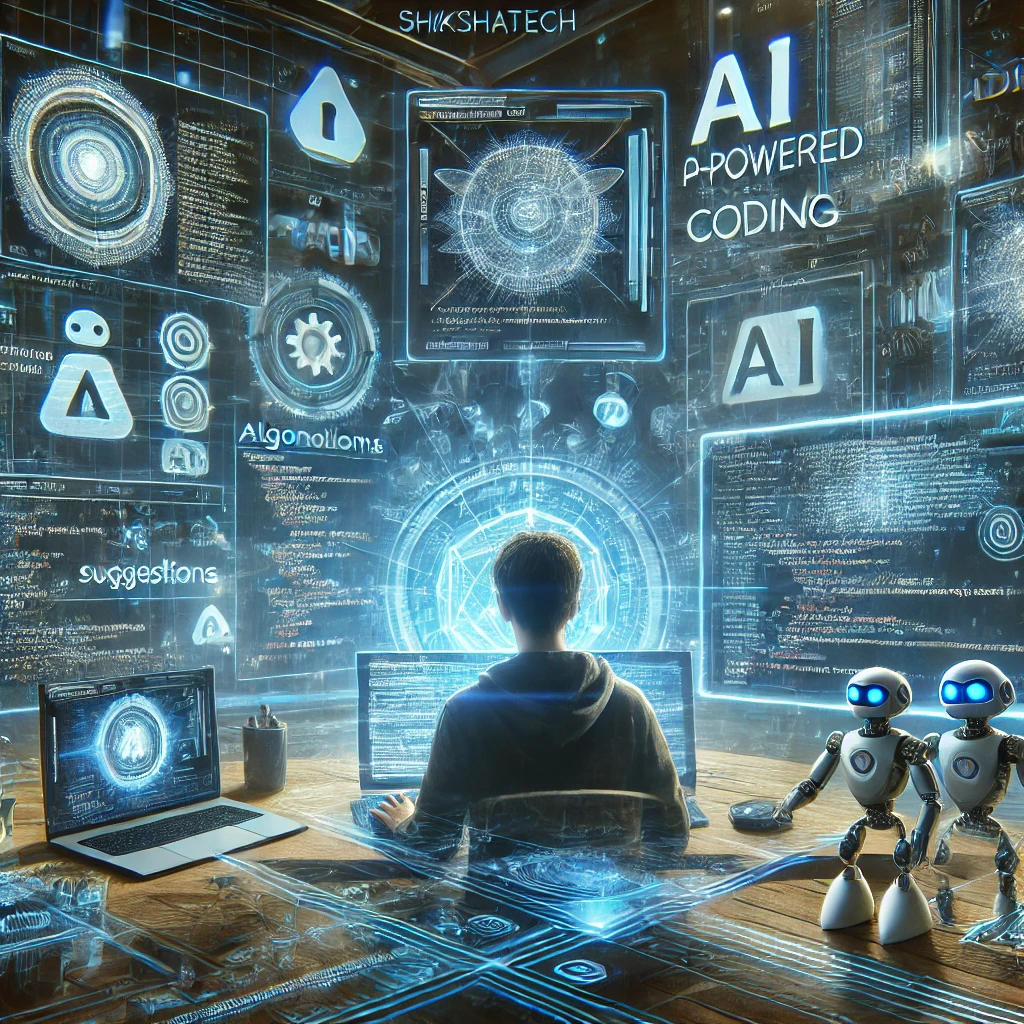The AI-Powered Future of Coding Is Near
Table of Contents
Introduction
The AI-Powered Future of Coding The world of software development is on the cusp of a profound transformation, driven by advancements in artificial intelligence (AI). AI has already begun reshaping industries like healthcare, finance, and transportation, and now, it is making significant inroads into the world of coding. The advent of AI-powered tools is not only changing the way developers write code but also enabling non-developers to build sophisticated applications. This article explores the various ways AI is influencing coding, from enhancing developer productivity to democratizing software development, and speculates on what the future may hold for the profession.
The Evolution of Coding: From Manual Processes to AI-Assisted Development
Coding has come a long way since the early days of punch cards and assembly language. Over the past few decades, we’ve witnessed a steady evolution in programming paradigms, tools, and frameworks, each aimed at making the process of software development more efficient. But despite these advancements, coding has remained a largely manual task, requiring deep technical expertise.
AI, however, is poised to change that. With the ability to analyze massive amounts of data, learn from it, and even make predictions, AI is now capable of automating many aspects of the coding process. From code generation and bug fixing to performance optimization and code reviews, AI-powered tools are transforming the way developers work.
The AI-Powered Future of Coding
AI-Powered Code Generation
One of the most exciting applications of AI in coding is automated code generation. Tools like OpenAI’s Codex and GitHub Copilot have garnered significant attention for their ability to generate code based on natural language prompts. These tools use deep learning models trained on vast amounts of open-source code to predict and generate code snippets or even entire functions.
For example, a developer can simply type a comment like “create a function that calculates the factorial of a number” and the AI will generate the corresponding code in the desired programming language. This drastically reduces the time spent on routine tasks, allowing developers to focus on more complex and creative aspects of software development.
The AI-Powered Future of Coding
Benefits of AI Code Generation
- Increased Productivity: AI-powered code generation tools can write large portions of code, speeding up the development process and freeing up developers for higher-level tasks.
- Lowering the Learning Curve: AI tools can assist beginners by providing code suggestions and examples, reducing the barrier to entry for learning programming.
- Reduction in Errors: By automatically generating code based on best practices, AI tools help reduce bugs and coding errors that might otherwise be introduced by human oversight.
However, while AI-powered code generation holds great promise, it’s important to note that these tools are not yet perfect. They can make mistakes, generate inefficient code, or misunderstand complex requirements, necessitating human oversight.
The AI-Powered Future of Coding
AI in Bug Detection and Debugging
Bug detection and debugging are among the most tedious and time-consuming aspects of software development. AI is playing a pivotal role in automating these tasks, making it easier for developers to identify and fix issues.
AI-powered debugging tools, like Microsoft’s IntelliCode, can analyze codebases and automatically detect patterns that might indicate bugs or performance bottlenecks. These tools are capable of identifying common coding mistakes, such as memory leaks, null pointer exceptions, and race conditions, and suggesting fixes. Moreover, some advanced AI systems can even predict potential future bugs by analyzing the patterns of past mistakes.
The AI-Powered Future of Coding
How AI Improves Debugging:
- Faster Bug Detection: AI can scan through codebases much faster than a human, identifying potential issues in real-time as developers write code.
- Automatic Fix Suggestions: Instead of simply pointing out a bug, AI tools can often suggest a fix, saving developers the time and effort of diagnosing the issue themselves.
- Pattern Recognition: By analyzing past bug reports and fixes, AI can learn to identify patterns and predict where future issues might arise, making the software development process more proactive.
The AI-Powered Future of Coding
AI-Driven Code Optimization
Another area where AI is making a significant impact is in code optimization. Traditional code optimization, whether it’s for speed, memory usage, or other performance metrics, is a painstaking process that requires deep expertise and a lot of trial and error. AI, however, can optimize code much more efficiently.
Using machine learning algorithms, AI can analyze a codebase and suggest optimizations that can improve performance. For instance, AI can suggest more efficient data structures, eliminate redundant calculations, or recommend alternative algorithms that can reduce computational overhead.
Furthermore, AI-driven tools like Facebook’s AI compiler can automatically rewrite code to optimize it for different hardware architectures. This is particularly useful in the era of cloud computing and edge devices, where code needs to run efficiently on a wide variety of hardware.
The AI-Powered Future of Coding
The Role of AI in Low-Code and No-Code Platforms
While AI is certainly enhancing the capabilities of experienced developers, it is also playing a crucial role in democratizing software development. Low-code and no-code platforms, which allow users to build applications with minimal or no coding knowledge, are powered by AI and have seen a surge in popularity in recent years.
These platforms typically provide drag-and-drop interfaces and pre-built templates, allowing users to create web and mobile applications quickly. AI enhances these platforms by offering intelligent recommendations, automating workflows, and generating code behind the scenes.
The AI-Powered Future of Coding
Examples of AI-Powered Low-Code Platforms:
- OutSystems: OutSystems uses AI to suggest the best architecture and code patterns based on the user’s requirements.
- Appian: Appian leverages AI to automate workflows and assist in application development without the need for extensive coding.
- Bubble: Bubble uses AI to help non-technical users build web applications, offering automated code generation and deployment features.
These platforms are revolutionizing industries by enabling non-developers, such as business analysts and product managers, to take part in the software development process. This is particularly valuable in industries that are undergoing digital transformation and need to develop applications quickly to stay competitive.
The AI-Powered Future of Coding
The Ethical and Societal Implications of AI in Coding
As AI becomes more integrated into the coding process, it raises a number of ethical and societal questions. One of the most pressing concerns is the potential for job displacement. If AI can write code, detect bugs, and optimize performance, will there still be a need for human developers in the future?
While it’s unlikely that AI will completely replace developers anytime soon, it’s clear that the role of a software developer will change. Instead of writing code from scratch, developers may spend more time overseeing AI systems, validating their output, and working on high-level architecture and design decisions.
Another ethical concern is the potential for bias in AI-generated code. Since AI systems are trained on existing codebases, they can inherit the biases present in that code. This can lead to biased algorithms, security vulnerabilities, or even unethical software. Ensuring transparency and accountability in AI-generated code will be critical as these tools become more widespread.
The AI-Powered Future of Coding
The Future of Coding in an AI-Driven World
The future of coding is undoubtedly AI-driven. As AI continues to improve, we can expect even more powerful tools that automate larger portions of the development process. Some experts predict that, within the next decade, coding as we know it may become a thing of the past, replaced by natural language programming, where developers simply describe what they want, and AI generates the necessary code.
This shift could lead to a new era of software development, where creativity and problem-solving are prioritized over technical expertise. Developers will likely focus more on high-level design, user experience, and ethical considerations, leaving the mechanical aspects of coding to AI.
However, for this future to be realized, several challenges must be overcome. AI systems need to become more reliable, capable of handling complex and nuanced requirements without human intervention. Additionally, the industry will need to address the ethical and security concerns associated with AI-generated code.
The AI-Powered Future of Coding
Conclusion
The AI-Powered Future of Coding is both exciting and uncertain. On the one hand, AI has the potential to drastically improve productivity, reduce errors, and make coding accessible to more people. On the other hand, it raises important questions about job displacement, bias, and the changing nature of software development.
What is certain is that AI is already transforming the way we code, and this transformation is only going to accelerate. Whether you’re an experienced developer or someone looking to build your first application, understanding how AI is reshaping the coding landscape will be essential in navigating the future of software development.
As we move forward, it will be crucial for developers, businesses, and policymakers to work together to ensure that AI is used responsibly and that its benefits are shared by all. Only then can we fully realize the potential of AI in coding and usher in a new era of innovation and creativity.
The AI-Powered Future of Coding



2 Comments-
-
https://medium.com/@info.shikshatech/the-ai-powered-future-of-coding-is-near-7da0efb415c2
https://shikshatech.substack.com/p/the-ai-powered-future-of-coding-is?r=4q9b89